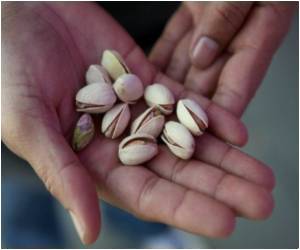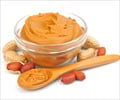Since March is National Nutrition Month, all things healthy feed on the limelight; most importantly you are encouraged to celebrate it with a heedful snack that loves you back: California pistachios.

With U.S. children and adults consuming food more frequently than they did 30 years ago, three meals a day is no longer the norm. Instead, snacks play a predominant role in the U.S. diet and there are now more opportunities than ever before to eat, so it is important what you choose packs a nutritional punch.
Once regarded as a high-fat food that health-conscious dieters should seek to avoid, nuts are now touted as nutritional powerhouses and are an ideal healthy snack. New research, supported by the International Tree Nut Council Nutrition Research and Education Foundation, adds to the growing number of studies that have consistently found that those who regularly consume nuts, like pistachios, tend to weigh less and have lower odds of developing certain chronic diseases.
Tree Nut Consumers May Have Lower Weight and Reduced Risk Factors for Certain Diseases
The study, recently published in the Journal of the American College of Nutrition, suggests that tree nut consumers are less likely to have certain risk factors associated with heart disease, diabetes and metabolic syndrome. The researchers examined the diets of more than 13,000 adults participating in the 1999-2004 National Health and Nutrition Examination Survey (NHANES) and found that tree nut consumption was associated with a lower prevalence rate of four risk factors for metabolic syndrome—abdominal obesity, hypertension (high blood pressure), low HDL-C (good cholesterol) and elevated fasting glucose—as well as a lower prevalence of metabolic syndrome in general, as compared to non-nut consumers. Metabolic syndrome occurs when you have a cluster of conditions that together increase your risk of heart disease, stroke and diabetes. In addition, tree nut consumers had higher levels of HDL-C and folate and lower levels of C-reactive protein and homocysteine, all of which are important indicators of heart health.
The researchers also discovered that, on average, tree nut consumers had significantly lower weight, waist circumference and body mass index (BMI) compared to non-tree nut consumers. The average weight, BMI and waist circumference of tree-nut consumers were about 4 pounds, 1 kg/m2, and an inch lower, respectively, than non-consumers.
Advertisement
Source-Eurekalert















